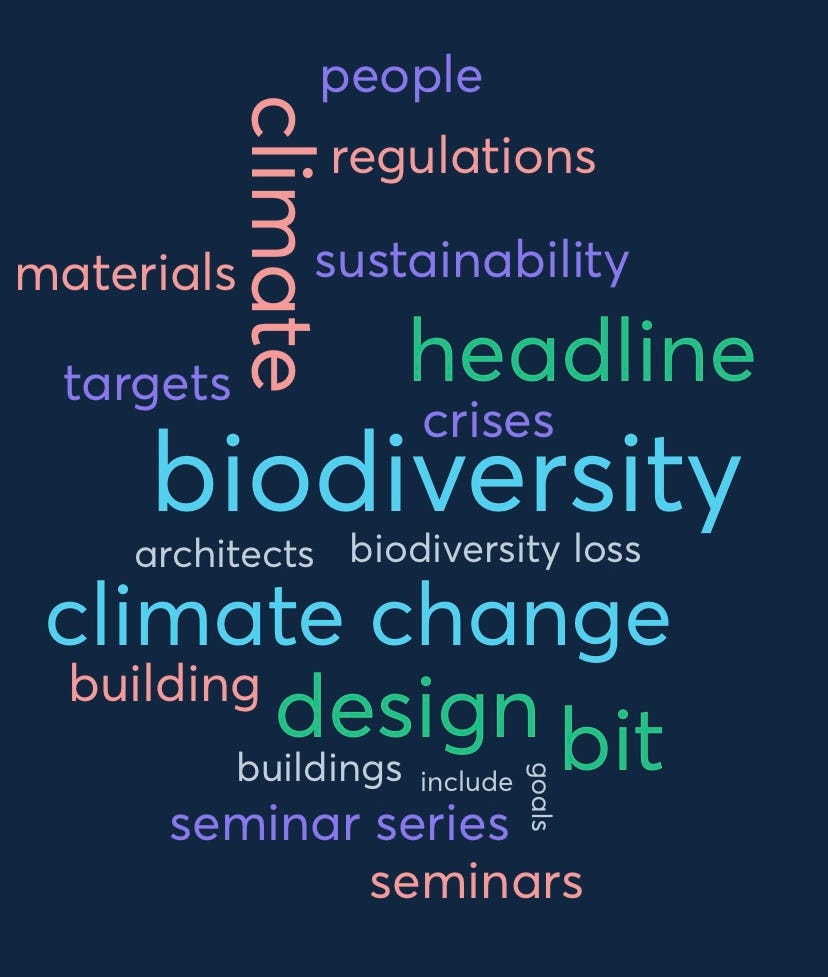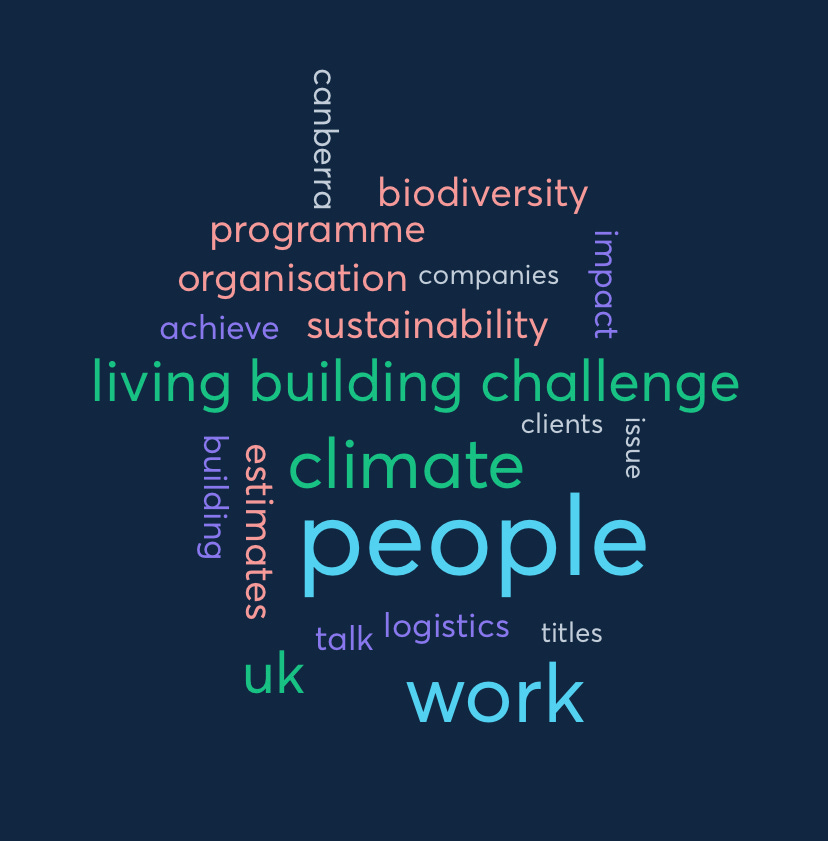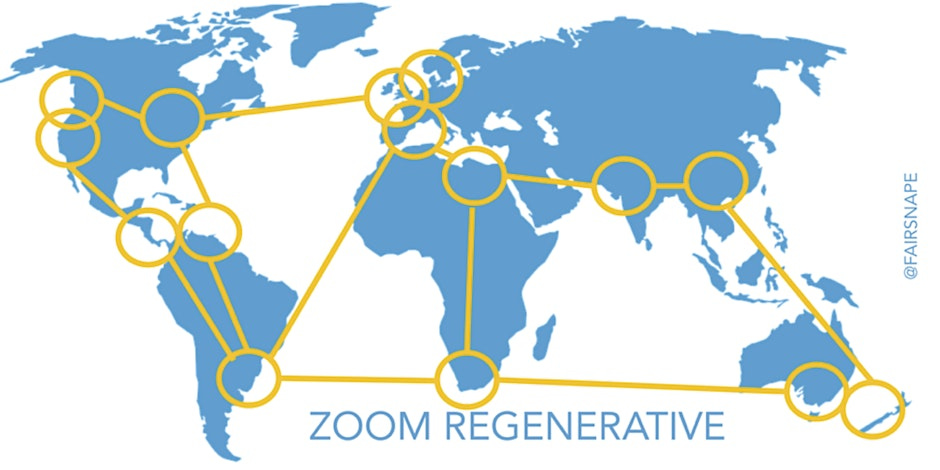Zoom Regen 53 Recapped
"The language used to talk about climate change matters when forming the most important argument in our history"
Welcome to the Regen Notes newsletter - a companion to Zoom Regenerative,
Zoom Regen 53 welcomed Taleen Josefsson, Founder of The Holistic Architect, based in Brooklyn, New York, and what a brilliant, rich and inspiring conversation …
Designing for the climate and biodiversity crisis
Taleen shared insights into her Design Art Seminars series "Designing for the climate and biodiversity crisis" aimed at educating architects and interior designers on the current trajectory of climate and biodiversity crises. The seminars aim to provide actionable items for practitioners to implement in their practices immediately. While acknowledging the challenges of marketing such a series due to the controversy surrounding climate change in the US, Taleen notes that clients are becoming increasingly interested in sustainable building accreditation schemes, and a bipartisan majority for climate action and justice exists.
Taleen emphasized the importance of using neutral language when communicating with individuals who do not share the same views on climate change. She shared a LinkedIn post from Kalle Crafton on the marketing of climate change, illustrating how language matters when forming the most important argument in history. Taleen encouraged a conversation on how to engage climate deniers and doubters and reduce divisiveness in promoting sustainable practices and regeneration.
The chat during Zoom Regen 53 was a rich thread of insights, links and observations and perhaps only meaningful within the context of the conversations and not shared beyond those attending. As such the chat record is a key reasons for attending the Regens’.
ZR Conversation
The conversation reflected on the power of language and how corporations may have co-opted certain words for profit. The concept of "sneaky sustainability" was liked and led to a discussion on the potential for profit and sustainability in a circular economy. However, they also noted the challenge of tracking the impact of imported materials and the need for more UK companies to track their impact.
The conversation shifted to partnerships between banks and consultancies, and the importance of tracking sustainability from the investment side of the sector. We also discussed the challenges of convincing builders to invest in sustainability and the need for improved climate change communication, touching on the issues of greenwashing and green-wishing.
Conversation emphasised the importance of people and community involvement in promoting sustainable and regenerative practices, and the need for interdisciplinary collaboration. They highlighted a number of organisations and resources doing important work in this field and suggested that research needs to be more widely communicated, in the right language to demonstrate the economic and health benefits of these practices.
Concerns were raised around the construction sector’s lack of productivity improvements, the need for a regenerative industry, and the potential for contractors to profit from waste recovery efforts.
Zoom Regenerative 54
Yep, 54, they keep rolling on with outstanding global guest insights and awesome conversation!
ZR54 is on the 21 March with Sam Shaw sharing work on the greening of the John Muir Way in Scotland and Tracey Hart feeding back on a question she asked at an earlier ZR - raising regenerative themes with a client (in this case Lake District National Park) Registration is open here on eventbrite
thinking biophilia
Join our Regen/Notes thinking journey - check out the recent post for more here
OK, trying something new here - The zoom recording transcript from ZR53 was condensed using ChatGPT with subsequent editing. This is the first time using AI in this manner - comments appreciated!







